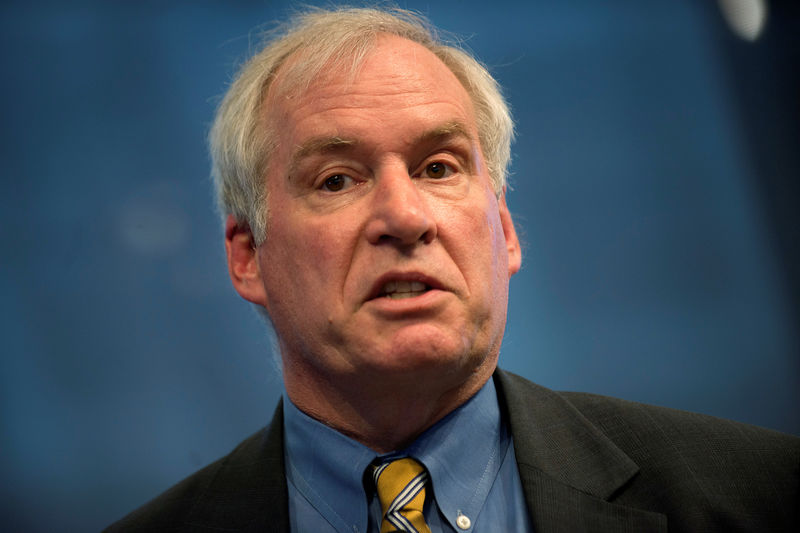By Howard Schneider
BOSTON (Reuters) - When Boston Federal Reserve Bank President Eric Rosengren switched from advocating low interest rates to tighter monetary policy, he argued it was time to start crawling back toward "normal" rates even with 5 percent unemployment and weak growth and inflation.
Two years later, Rosengren has joined colleagues in beginning to lay the groundwork for those rate hikes to potentially continue longer and to a higher level than currently expected as the outlook for the economy strengthens.
Rates may not only need to become "restrictive," but the definition of that may be moving up as well, Rosengren said in an interview with Reuters on Saturday following an economic conference here.
"This is not hair on fire. There is upward pressure on inflation, and given that we are already at 2 percent, labor markets are already tight ... that is going to be a situation where we start persistently having inflation above what our target is," Rosengren said. "There is an argument to normalize policy and probably be mildly restrictive."
The Fed maintains a 2 percent inflation target, which it is only now reaching after a decade struggling to consistently hit and maintain it.
He said the Fed does not need to move faster than the current gradual pace, which has translated into roughly one rate hike per quarter, with the next expected later this month. That steady pace is a luxury gained by starting early, he said, skirting the need to move more quickly and catch up with a tightening economy.
But the terrain has shifted since. Between growth hovering around 3 percent, roughly full employment, and risks that global trade tensions could "embed" faster price hikes, Rosengren said "we have a pretty good idea what the path will be if we don't have a big surprise."
That points to two more increases this year and three in 2019, bringing the Fed's policy interest rate to just over 3 percent by the end of 2019.
Data from the Fed's June meeting show the central bank roughly pausing at that level, with the median projection of policymakers foreseeing only a single additional hike in 2020. The Fed at that point would be slightly above what it considers its "neutral" rate, entering the restrictive zone that both Rosengren and Chicago Fed President Charles Evans said this week would likely be needed.
Whether the current tightening cycle stops there is another matter.
Officials warn against putting too much stock in longer term policy projections, given how quickly economic events can reshape their thinking. But, beginning with Chairman Jerome Powell, they have also begun cautioning that their working estimates of things like the neutral rate may be too imprecise to serve as even a short-term policy guide. Others have said that, whatever the neutral rate is, it may be moving higher as the economy improves.
Perhaps the Fed's most cited estimate of neutral, from an economic model developed by New York Fed President John Williams and Fed Director of Monetary Affairs Thomas Laubach, showed some of the vagaries involved. After being stuck near zero, the model's estimate of neutral has swung to close to 1 percent based on revisions to how far the economy is felt to be operating above potential, according to data posted on the New York Fed website.
Policymakers will issue new projections at their meeting later this month, and Rosengren said job and growth data seem increasingly "inconsistent" with estimates of a low neutral rate.
Current policy may, in other words, be looser than thought, and the economy able to tolerate more tightening.
"It would not surprise me at all if the committee estimates ... go up over time," Rosengren said. And if those estimates rise, "you would expect the path to move as well," he said.
